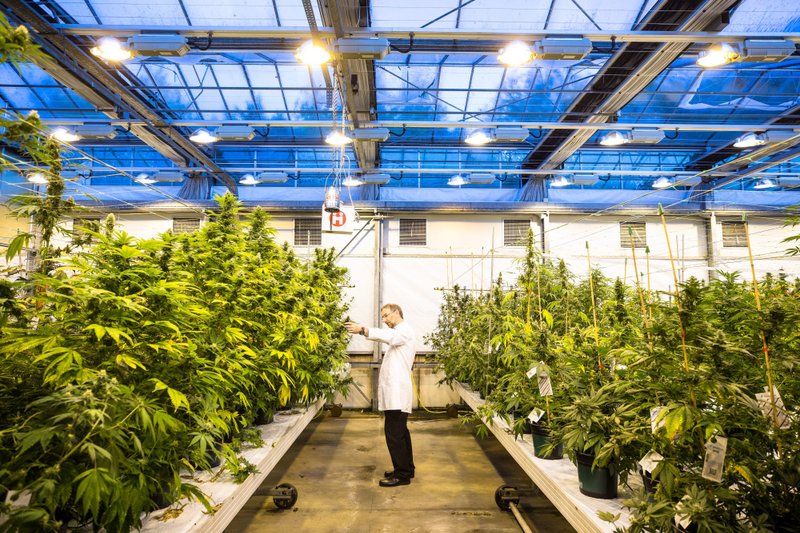The green wave of cannabis legalization is hitting the U.K.
Britain's government began Thursday officially allowing some physicians to prescribe medical marijuana. It will take time to import a supply, and many doctors may not know how to use it, but the U.K.'s 66 million people add a significant new market for the booming global industry.
While Europe has lagged behind Canada and some U.S. states in legalization, sentiment around medical cannabis moved U.K. officials to act this year. The issue heated up over the summer as parents of children who used the drug to treat seizures pressed the government for legalization.
In October, Home Secretary Sajid Javid announced that cannabis would become legal Thursday for specialist doctors, not general practitioners, to prescribe for any condition. Javid cited "heartbreaking cases involving sick children" as a motivation for the change.
Medical cannabis will still face a number of restrictions. Doctors will need approval on a case-by-case basis before issuing a prescription. The Royal College of Physicians doesn't recommend cannabis for pain treatment, so patients may not be able to get it through the National Health Service for that purpose.
Supply shouldn't be an issue, according to Cosmo Feilding Mellen, managing director at a British unit of Canopy Growth Corp. Companies will apply for import licenses in the coming weeks, he said. That should bring Canadian marijuana to the market by the end of the year.
"Based on the clinical guidelines, we'll import as appropriately and quickly as possible," he said by phone. "We expect there to be a huge demand, unmet demand for medicinal cannabis."
Canopy will unroll a range of products derived from the plant, including oils and gel capsules, to meet the demand. Feilding Mellen expects any appropriately licensed pharmacy to be able to sell them.
The U.K. is the biggest producer of cannabis for medical and scientific purposes, according to the United Nations. GW Pharmaceuticals, based in Cambridge, England, grows about 20 tons of cannabis annually at greenhouses the size of football fields.
The plants, genetically modified to remove psychoactive properties, are used to produce Epidiolex, a prescription drug for children with severe epilepsy. The U.S. Food and Drug Administration approved the treatment in June, making it the first prescription medicine derived from cannabis permitted to be sold in the U.S.
Separately, the Supreme Court of Mexico issued two rulings Wednesday that effectively overturn the country's ban on the recreational use of marijuana.
The rulings follow similar decisions in three previous cases, going back to 2015. Under Mexican law, five such decisions set a binding precedent nationally.
"This 5th judgement means that, while the cannabis prohibition law nominally remains in place for now (and arrests remain possible), all judges nationally are now bound by the Supreme Court judgment as a defense in the (now much less likely) scenario of prosecutions being brought," according to Transform, a think tank that was part of the effort to overturn the ban. "The legalization of cannabis for adult personal use, possession, private cultivation and sharing is therefore currently de facto (in practical effect), rather than de jure (formalized in law/legislation)."
In a news release translated by Transform, the court said that "the fundamental right to the free development of the personality allows the persons of legal age to decide -- without any interference -- what kind of recreational activities they wish to carry out and protect all the actions necessary to materialize that choice."
The right to the free development of the personality is a concept from the country's constitution, amounting to something like a right to self-determination.
As in previous cases, the court ruled this week that preventing individuals from using the drug violates their individual autonomy, particularly because marijuana use does not present enough risk to users or to others to justify keeping it outlawed.
"The effects caused by marijuana do not justify an absolute prohibition on its consumption," the court said.
The Mexican congress now has 90 days to rewrite the nation's drug laws to comply with the rulings, "at which point the reform will assume de jure status," according to Transform. It remains unclear what the congress will do in response to the ruling.
Information for this article was contributed by William Mathis and Thomas Buckley of Bloomberg News and by Christopher Ingraham of The Washington Post.
A Section on 11/02/2018

